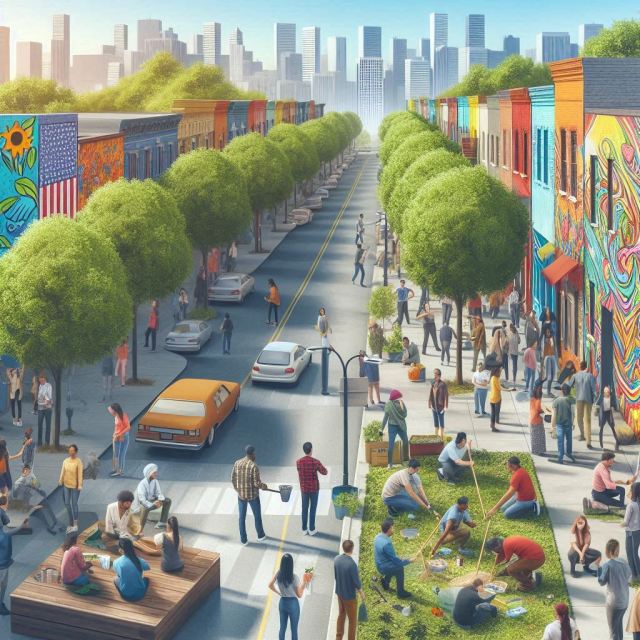The proposed Urban Renewal Bill (URA), formerly known as the Urban Redevelopment Bill, has sparked debates on whether it genuinely seeks to address urban decay or merely serves as an avenue for developers to profit. The Ministry’s decision to allow public input into the draft Bill is commendable, but several key concerns remain unresolved.

Lowering the Consent Threshold for En-Bloc Sales
A significant issue with the URA is its potential to lower the consent threshold for en-bloc sales of strata title properties. This raises concerns that property owners may be coerced into selling their homes against their will. In 2023, a total of 139 sites in Kuala Lumpur and 534 sites across Peninsular Malaysia were identified, with an estimated Gross Development Value (GDV) of RM332.5 billion—some estimates even go as high as RM355.3 billion. Given the scale of these developments, it is only a matter of time before the GDV exceeds RM1 trillion.
The Draft Bill: Simplistic and Lacking Protection for Proprietors
Despite numerous town hall discussions, the draft Bill appears overly simplistic, failing to consider the financial burden on proprietors post-redevelopment. There is no provision to ensure that affordable housing is included in redeveloped sites. The Khazanah Research Institute has repeatedly emphasized that Malaysia’s housing market remains “seriously unaffordable,” and excluding affordable housing from urban redevelopment could further widen the socioeconomic gap.
Ambiguities and Legal Concerns
The Bill proposes urban renewal for buildings aged 30 years or older. However, will this criterion apply again when these redeveloped buildings reach the 30-year mark? Additionally, the invocation of the Land Acquisition Act 1960 under Clause 5(3) contradicts Article 13 of the Federal Constitution, which guarantees the right to own property without unjust deprivation. Moreover, Clauses 5(4) and (5) allow developers a 24-month extension to commence projects, which is highly questionable if the redevelopment is initiated by the developers themselves.
Lack of Clear Incentives and Safeguards for Proprietors
Clauses 6, 9, and 15 mention incentives for a “qualified person” without defining who qualifies. Are these incentives meant exclusively for developers? Furthermore, the absence of penalties for project failures or delays raises concerns about accountability. The Federal Executive Committee, tasked with protecting proprietors’ interests under Clause 6(3)(d), lacks clear mandates, potentially weakening homeowners’ legal protections.

Weak Project Monitoring and Absence of Compensation Provisions
The Bill lacks a structured project monitoring framework. Developers are only required to provide progress reports upon request, leaving room for mismanagement. Compensation considerations are glaringly absent, neglecting factors such as relocation expenses, loss of income, and accessibility to public transportation.
Financial Burden on Existing Homeowners
The Ministry proposes working with financial institutions to help proprietors acquire replacement housing. However, if homeowners cannot afford redevelopment costs, how will they secure additional loans? Without adequate compensation, displaced residents may struggle to find new homes within the same area, leading to socio-economic displacement.
Transparency and the Role of Local Authorities
The Ministry should publicly disclose reports detailing which buildings are structurally unsound and require redevelopment. The claim that Kuala Lumpur’s skyline will resemble Mumbai if nothing is done within the next decade is an oversimplification. The real question is: why were local authorities not proactive in maintaining these buildings over the years?
The Real Beneficiaries: Developers or the Public?
Developers primarily build high-end properties. When these remain unsold, they lobby the government to introduce policies favoring them. One MP claimed that urban renewal will create modern, safe, and sustainable environments, yet little consideration is given to financial feasibility for existing residents, infrastructure strain, increased cost of living, and environmental impact. Case in point: Razak Mansion residents now struggle to afford RM120 monthly maintenance fees post-redevelopment.

Do We Need a New Law?
Housing issues can be addressed within existing legal frameworks, including the National Land Code 1965, Housing Development Act, and Local Government Act 1976. Instead of introducing another Act, the Ministry should strengthen enforcement and control measures within these existing laws. Furthermore, what happened to the National Affordable Housing Policy (DRMM) enacted in 2019? Rather than reinventing the wheel, focus should be on improving housing affordability, streamlining development costs, and promoting sustainable building practices.
A Holistic Approach to Housing Reform
Malaysia’s housing policy should prioritize:
- Reviewing development costs to make housing more affordable.
- Implementing stronger development controls.
- Creating a unified housing database.
- Establishing localized affordability thresholds.
- Increasing the supply of affordable housing.
- Shifting towards a Build-Then-Sell (BTS) model to protect buyers.
- Encouraging developers to adopt advanced construction technologies to improve productivity and reduce reliance on foreign labor.
Urban Renewal or Residential Displacement?
A critical downside of urban redevelopment is the erosion of local culture, heritage, and community bonds. Ironically, while the Ministry nominates Chinese New Villages—originally concentration camps—as UNESCO heritage sites, it disregards similar considerations for Malay-majority communities facing forced relocation due to redevelopment.
Conclusion
If the URA is passed, it must include affordable housing provisions, prevent displacement, and maintain racial composition in affected areas for the next 30 years. Redevelopment should enhance the quality of life, not merely serve as a profit-driven exercise for developers. The Ministry must ensure that urban renewal benefits all Malaysians, aligning with the principles of sustainability, care, and compassion outlined in the Madani framework.
What say you?











More Stories
There Is More To Curbing Tax Non-Compliance And Formalising Shadow Economy…
Antara Hakikat dan Fitnah: Menilai Jalan Habaib dan Tarikat Ba‘Alawi dalam Cahaya Tasawuf Imam Ghazali
Kembalikan Semangat Asal UDA: Kunci Menyusun Semula Masyarakat Bandar